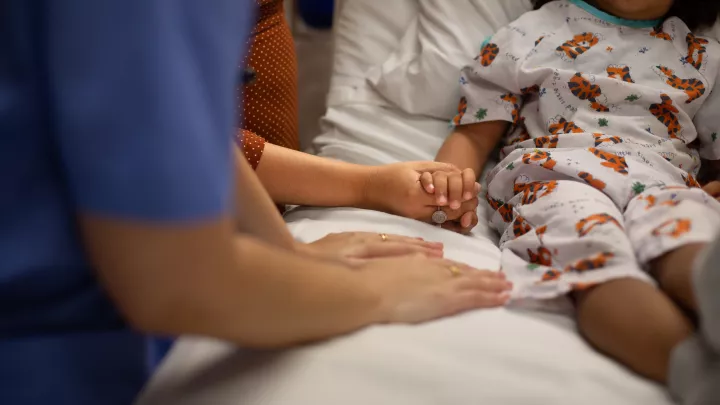
What Is a Clinical Trial? Your Questions Answered
Understanding clinical trials is the first step toward deciding if your child should join one. Is participation in clinical research right for your family? Use our answers below to help guide you.
What is a clinical trial?
Clinical trials are research studies involving people who test the safety and effectiveness of interventions such as medications, vaccines, devices and procedures. Sometimes, clinical trials look at innovative ways to use existing treatments or to change health behaviors. The goal: to develop better ways to prevent, diagnose and treat disease.
How is a clinical trial different from other types of research?
Basic science or laboratory research explores the origins of diseases, including their underlying mechanisms and biological processes.
Clinical research applies that knowledge to specific treatments and medications to improve patient care. It relies on human volunteers to help scientists find new treatments or improved procedures.
Why is clinical research in children important?
Children can react differently to diseases and treatments than adults. Reactions can also differ by the age of the child, as infants, school-age children and teenagers may not respond the same way to a medical intervention.
In the past, doctors had to prescribe medications for children that were tested only on adults. Now pediatric clinical trials have expanded to discover age-specific, evidence-based therapies just for kids.
Who can be in a clinical trial?
That depends on what the study is trying to find out. Some trials include healthy volunteers; others recruit patient volunteers—or both. Either way, individuals must fit the criteria for a specific study to participate in it.
What are the benefits to society—and to participants?
We have the drugs, medical devices, surgical techniques and diagnostic tests we do now because people volunteered for clinical research. Research benefits from having participants of diverse ages, sexes, races and ethnicities participate in clinical trials, as the results will be relevant to more people of diverse backgrounds.
In some studies, volunteers may gain from a treatment under investigation. But not everyone who participates will see a personal benefit. More and better therapies for children are urgently needed, and it is important that treatments for children be tested on children.
What is a randomized, controlled trial? What about double-blinded? What’s a placebo?
In a randomized, controlled clinical trial, a computer randomly assigns patients to two or more groups, which helps to prevent bias. The control group receives the standard therapy, while an investigational group receives the treatment under study.
These trials are “blinded.” Patients don’t know if they will receive the study treatment or the standard treatment until the trial is over. In a double-blind study, both patients and researchers don’t know which treatment each participant is receiving, further reducing the chance of bias.
Are there risks to participating?
Each study involves different degrees of risk. In a survey study, volunteers may be asked questions about their health or behaviors, which carries minimal risk. A study of an experimental drug may involve side effects. Clinical trials are conducted in a series of phases, to reduce risk. The research team is required to explain all known risks before you decide whether your child should join. Participants are also monitored closely to ensure that the study is not harming their health.
How are study subjects protected?
Clinical trials must pass thorough evaluations of risks and benefits before recruiting patients. At CHLA, the Institutional Review Board oversees research involving people to ensure their rights and welfare are fully protected.
Participation is voluntary and you can withdraw at any time, for any reason, without affecting your child’s care.
Should I enter my child in a clinical trial?
Talk to your child’s pediatrician or specialist before enrolling. Your doctor can help you identify clinical trials for which you may qualify, as well as evaluate potential risks and benefits.
Ask questions of the investigator in charge of the trial. Take notes of your conversation. Then decide what’s best for your child.
Does being in a trial take extra time or travel?
Taking part in a study can take time out of your schedule. Some trials will reimburse you for travel expenses—be sure to ask.


